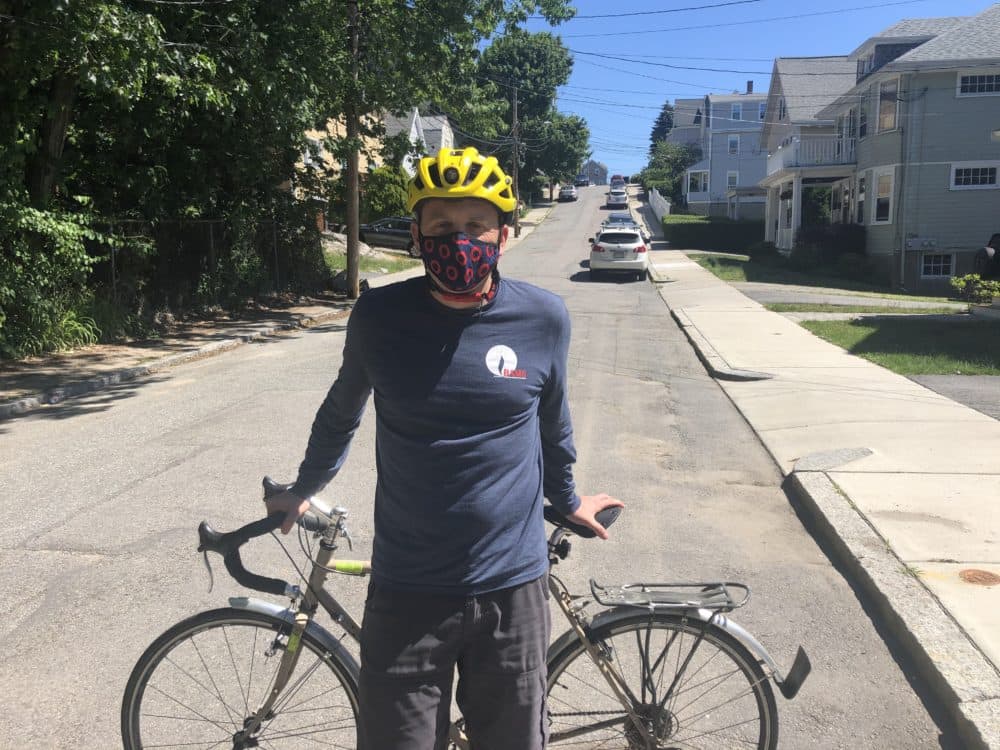Advertisement
Commentary
I Don't Wear A Mask Because I'm Scared. I Wear It Because I Respect You

In Judaism, we tear a piece of our clothing or a black ribbon worn on our clothing to communicate that we are in mourning. Kriah, as the practice is known in Hebrew, is an ancient tradition with biblical roots and is an expression of grief and anger.
In secular society, we wear colored ribbons to promote causes. The earliest known use of a ribbon for this purpose was the yellow ribbon, worn to support the Puritan Army during the English Civil War.
More recently, people wear ribbons to express support for a host of AIDS (red) to Alzheimer’s (purple) to gun violence (orange) to LGBTQ rights (rainbow).
Unfortunately, throughout history, people have also conveyed their hatred and bigotry through simple cloth adornments. The swastika made clear the views of its wearer.
These simple symbols made of cloth allow us to express our most intimate feelings — grief, anger, love, pride and hatred — to strangers and passersby. In the best cases, they allow us to be vulnerable, feel safe and show solidarity. In the worst cases, they allow us to intimidate, bully and instill fear. Small pieces of fabric can convey broad messages.
Small pieces of fabric can convey broad messages.
In recent months, a new fabric accessory has become ubiquitous in our society: the face mask. As an infectious diseases physician, I have spent more time in the past three months talking about and obsessing over masks than I ever dreamed possible for a scrap of fabric.
Now, of course, the mask has found its way outside the hospital walls. People are guided by the U.S. Centers for Disease Control and implored by local and state governments to wear face masks or coverings. In the blink of an eye, the face mask became the season’s latest fashion trend. We have masks with sequins, baseball team logos and cartoon characters. We even have masks that can be printed to look like your own face. Personally, I have masks adorned with the logo of my favorite band, Phish. Face masks are nearly everywhere.
In our polarized time and in our polarized country, not everyone is on board with the face mask. Notably, many of our elected officials have refused to wear face masks, even while visiting hospitals and PPE factories. Conspiracy theories abound about the virulence of the novel coronavirus, which are enough to keep people from wearing a mask. For others, it is a matter of personal freedom. Still others believe that cloth masks are not effective at preventing transmission and therefore, wearing one is futile.
Admittedly, I have had some of those same thoughts as I ride my bike home from the hospital with half of my face covered in sweat and boxed in with stale breath. I have wondered why I subject my children to wear their cereal-crusted masks each time they venture to our street.
Have we gone too far?
As an infectious disease physician, it is easy to remain grounded and put on a mask after witnessing so much suffering and death from COVID-19. But what do we say to everyone else?
The face mask is a non-verbal way to communicate to others that I think their life matters and has value.
At the very least, the face mask is a symbol, much like the torn clothing or the ribbon. The face mask is a non-verbal way to communicate to others that I think their life matters and has value. It is my way of announcing that we are in this together and that my comfort is not more important than their health. And though it is "itchy and scratchy and smells bad in there," as my children tell me, wearing masks is one way in which I can instill in them that other people’s lives matter. I will continue to wear my sweat-drenched Phish mask on my bike ride to and from the hospital during the hot and humid Boston summer.
In the past three months, the face mask has symbolized many things: fear, courage, uncertainty, despair. As we reopen our offices, our parks, our hospitals and our places of worship, many of us will remain nobly hidden behind our masks. I hope that as I pass you on the street, you know that I wear my mask not out of fear, but out of respect. Respect for your family, for my patients and for your life.
